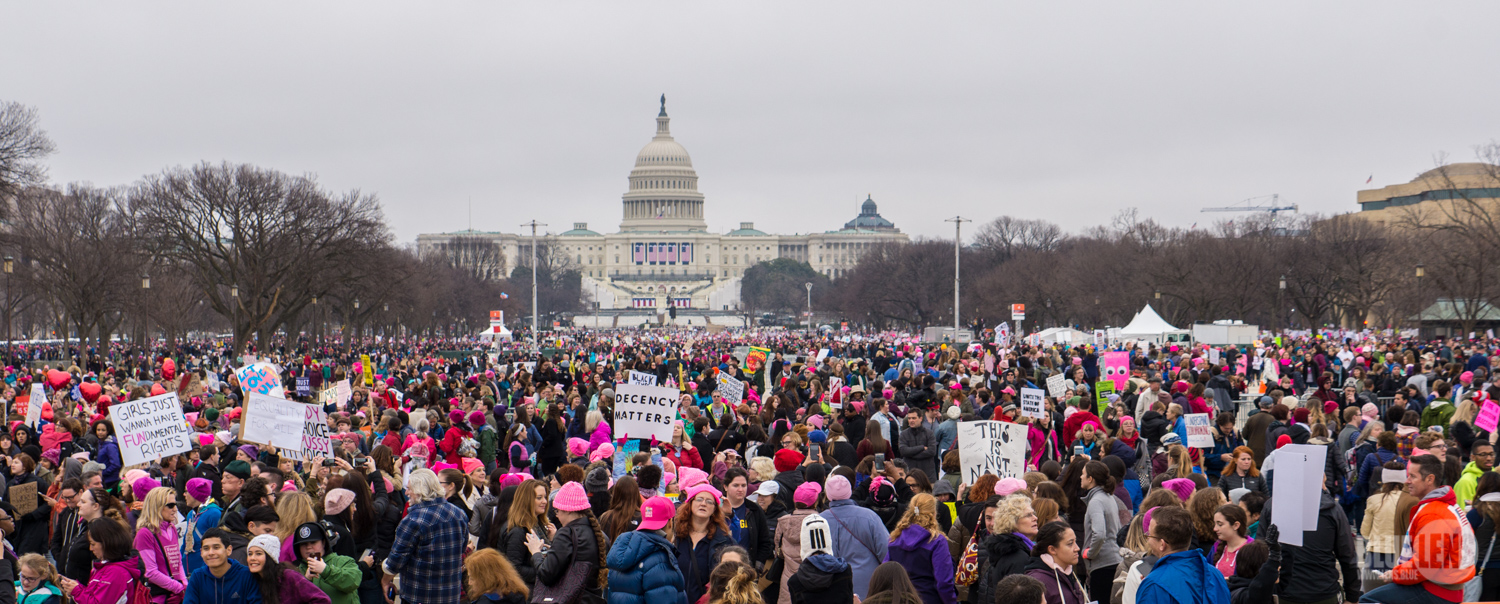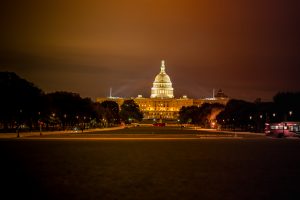Georgetown students will have the choice to participate in the third annual Women’s March on the National Mall this Saturday, Jan. 19. The first Women’s March took place on Jan. 21, 2017, the day after Donald Trump’s inauguration, as a response to his sexism and policies designed to limit women’s autonomy. Attendance was estimated at 470,000 people, more than three times the amount who attended the actual inauguration. Since then, the Women’s March organization has continued to host rallies and events aimed at supporting women’s rights and other progressive causes.
This editorial board unequivocally supports the original mission of the march and the women who attended, many of whom have used their experience marching as a starting point for advocacy work and resistance to policies harmful to women. However, we feel that issues surrounding the organizers of the national march cannot be ignored. And as such, we implore you to refrain from participating in Saturday’s march.
While the organization promotes ideas of transparency and accountability, the three co-chairs—Linda Sarsour, Carmen Perez, and Tamika Mallory—have failed to realize these values or lead by example. The three were found to have ties to the Nation of Islam’s Louis Farrakhan, a known anti-Semite. His discriminatory views are a far cry from the intersectionality the organizers claim to embody.
Anti-Semitism has been present in the organization since its founding, according to early organizer Vanessa Wruble, who felt her Jewish identity was part of the reason she was pushed out of the group.
More recently, objections arose when Farrakhan praised Mallory in one of his speeches. In the same speech, he said “the powerful Jews are my enemy.” In December 2018, a piece was published on Tablet, an online Jewish magazine, outlining the troubling history of the march’s relationship with Jewish women and their exclusion from leadership positions, as well as its failures to include the LGBTQ+, disabled, and veteran communities, along with communities of color.
This raises serious concerns about the march’s leadership and the corresponding implications for those wishing to participate. The organization responded by saying it categorically supports Jewish women, but has made no leadership changes to address the fundamental issue of anti-Semitism within the organization. This lack of action reinforces this editorial board’s concern that the leaders of the march are not fit to carry out a message of intersectional, inclusive, and progressive feminism.
Therefore, we insist that people refrain from associating with the Women’s March as a whole until fundamental changes are made within the organization’s leadership.
The failure to appropriately deal with internal faults was again exemplified when a local branch in Eureka, California cancelled a planned women’s march over concerns that the march would mainly attract white women, leading to more negative publicity for the national organization. This demonstrates a failure to adequately deal with issues of diversity and intersectionality, as the organization continually chooses to deny allegations rather than reach out to underrepresented communities.
While some states have chosen to go ahead with their marches as planned, others have distanced themselves from the national organization, cancelling or rebranding their marches. Sponsors such as the Democratic National Committee, the Southern Poverty Law Center, and EMILY’s List have pulled out entirely. Others, including Planned Parenthood, have publicly expressed continuing support for Sarsour, Perez, and Mallory. Cecile Richards, Planned Parenthood’s former president, will speak at the D.C. march this year.
For many people, including Georgetown students, this debate raises the question of whether to attend the march this weekend. While this editorial board recognizes the importance of participating in protests for progressive values, we urge everyone planning to attend this Saturday’s official march to reconsider. The Women’s March cannot truly support women unless it supports all women, without exceptions or excuses. And that goes for any person, group, or organization aimed at promoting women’s rights.
And whether students march or not, this debate should serve to remind everyone to be conscious about supporting organizations that are truly intersectional and inclusive—not simply claiming to be—as well as those that are active throughout the year. The American Association of University Women, National Organization for Women, BuiltByGirls, Girl Up, and Girls On The Run are all advocacy organizations with local opportunities and more tangible missions that strive to include all voices.
Whether through volunteer work, advocacy work, or protesting, all students must try to find a way to foster change and continue to resist misogynistic policies supported by the current administration. Even if you have lost faith in an organization, do not lose faith in the movement as a whole.





